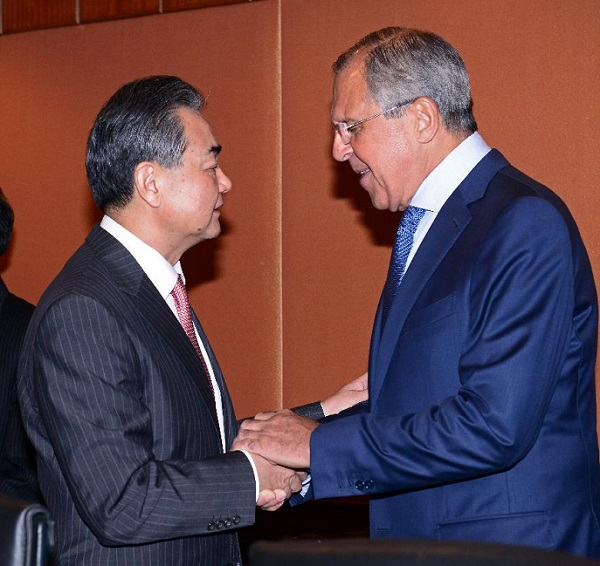

Follow us on:  
|


File photo of Chinese Foreign Minister Wang Yi with his Russian counterpart Sergei Lavrov [Xinhua]
China and Russia, who enjoy excellent relations, have been key drivers in the rise of multilateralism, he added. They have been playing an “important and active role” in the Shanghai Cooperation Organization and the BRICS bloc, he said.
He stressed “how much attention leaders of Russia and China pay to international issues,” including the “constant accumulation of threats.”
He used the example of North Korea’s growing threats and destabilizing stature in the Asia-Pacific region but also hinted at Washington’s deployment of advanced anti-missile weapons to offset Pyongyang’s growing danger in the region.
The deployment of such a system would escalate tensions on the peninsula and in northeast Asia, both China and Russia have argued in recent months.
As one of the most advanced missile defense systems in the world, the Terminal High Altitude Area Defense system, or THAAD, can intercept and destroy ballistic missiles inside or just outside the atmosphere during their final phase of flight.
Despite claims by Washington and Seoul that the missile shield would be focused solely on North Korea, Beijing and Moscow says the US deployment would pose considerable threat to neighboring countries.
“Once deployed, the system would pose a direct threat to the strategic security of China and Russia,” China’s Foreign Minister Wang Yi has previously said.
Lavrov on Tuesday said that such policies lead to a “disproportionate build-up of armaments” in the region.
“Russian and Chinese positions are absolutely identical. We try to convince all the other participants in the so-called six-party talks to assume the same approach,” he said of the North Korean missile crisis.
The BRICS Post with inputs from Agencies